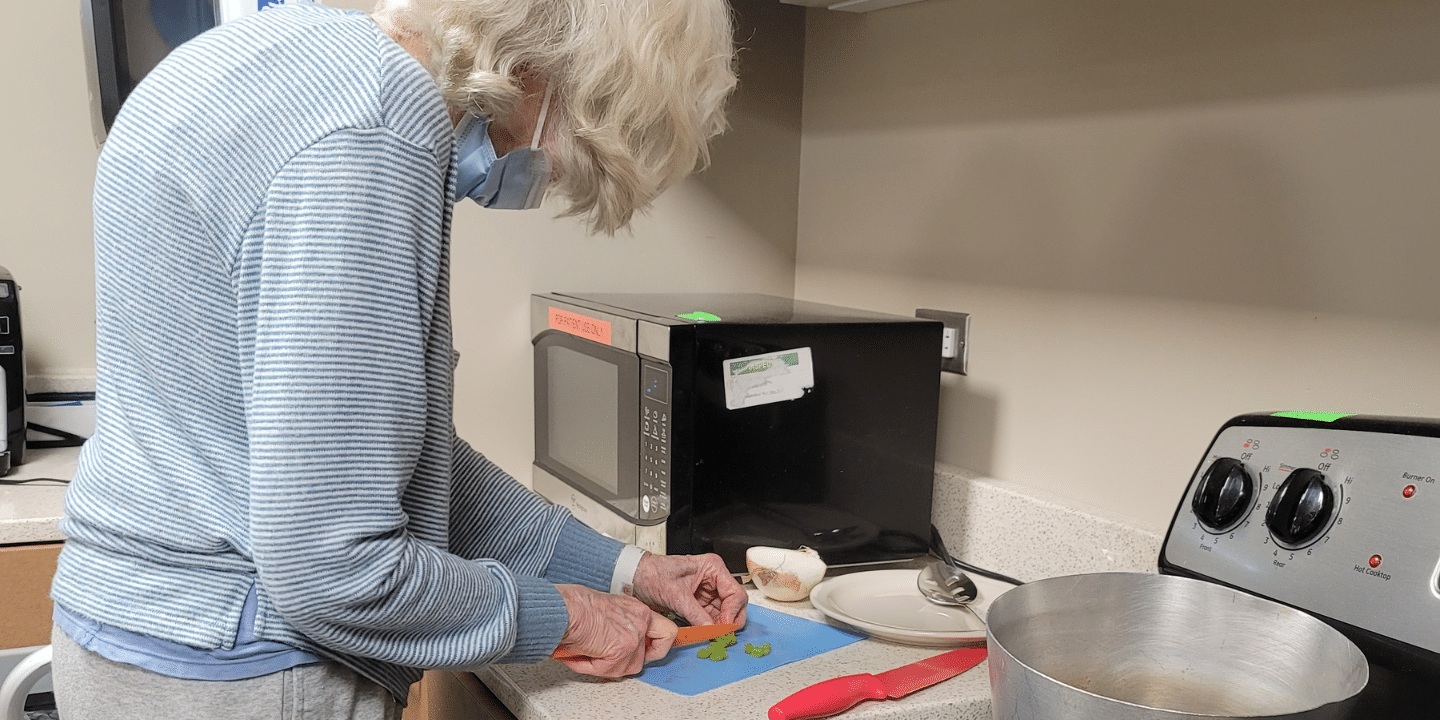What we eat affects how we feel, how well we heal, and how long we maintain our independence – and a healthy diet becomes even more important as we age.
At the Methodist Home for Nursing and Rehabilitation, we understand that good nutrition is more than just a meal. It’s a key part of the recovery process, and we want short term rehabilitation patients to understand how a healthy diet can support aging, healing, and recovery.
The Link Between Diet and Aging Well
The body needs specific nutrients to maintain energy, immunity, and cognitive health as we age. Calcium and Vitamin D support bone strength; antioxidants help protect brain function and reduce inflammation. Fiber and proper hydration aid digestion, while a low-sodium diet helps manage blood pressure.
Additionally, a healthy diet can help manage or prevent chronic conditions like diabetes, hypertension, and heart disease to help patients feel better and stay active longer.
Nutrition’s Role in Recovery and Rehabilitation
While nutrition is important for everyone during all stages of life, it becomes even more essential during short-term rehabilitation. The body needs protein to rebuild muscle and tissue, along with key vitamins and minerals that support healing and reduce inflammation. No matter the reason for rehabilitation – joint replacement, stroke, illness, or surgery – the right foods can help accelerate healing and improve energy levels during therapy.
We prioritize balanced meals that support recovery goals, whether that means high-protein options for rebuilding strength, texture-modified meals for swallowing challenges, diabetic-friendly choices to maintain blood sugar control, or renal diets to support our rehabilitation patients receiving treatments in our onsite Rogosin Institute Dialysis Center.
Personalized Nutrition Services at the Methodist Home
Every person’s nutritional needs are different, just like their other care needs. Our registered dietitians work closely with each patient and the rest of the care team to develop individualized meal plans that meet medical needs, support rehabilitation, and respect personal preferences.
We accommodate a wide range of dietary considerations, including heart-healthy diets, low-sodium meals, diabetic-friendly menus, and specialized diets for residents with kidney disease or other medical concerns. We also modify meals for texture, swallowing safety, and other clinical needs – all without sacrificing flavor.
Dining with Dignity and Enjoyment
Of course, meals should be enjoyable as well as nutritious. We believe dining should be an experience, not just a necessity. In addition to our regularly served meals, we also have an onsite bistro that gives patients an additional space to enjoy freshly prepared meals in a relaxed, welcoming setting.
We also offer a variety of food-related activities throughout the month, from social parties to cooking club events and more.
Whether dining in the bistro, enjoying meals in our main dining room, or participating in food-related activities, we strive to create a positive, social environment that encourages patients to get the nutrition they need.
Supporting Long-Term Wellness
Good nutrition is a cornerstone of healthy aging. For patients recovering from illness or hospitalization, building healthy eating habits during a short-term rehab stay can offer lasting benefits well after discharge.
We educate patients and families about ongoing dietary needs, healthy habits, and practical strategies to support wellness at home. Through personalized nutrition support, enjoyable dining experiences, and close coordination with our clinical team, we help every patient recover fully and live well.
If you or a loved one is considering short-term rehabilitation or long-term care, we invite you to learn more about how our team can support you on your healing journey. Contact us today to discuss your needs – we are here for you.

